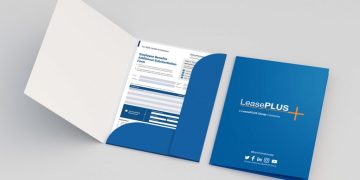Introduction to Commercial Roofing
The Importance of Commercial Roofing
Commercial roofing is more than just a layer of protection against rain and sun. It also maintains a comfortable indoor temperature, prevents leaks and water damage, and contributes to the overall energy efficiency of a building.
A high-quality roof can enhance the lifespan of a commercial property and minimize costly repairs down the line. So, when it comes to roofing, investing in quality materials and professional installation is worth every penny.
Overview of the Commercial Roofing Industry in San Diego
San Diego’s commercial roofing industry is diverse and competitive, offering a wide range of services to cater to the needs of different businesses. With the city’s unique climate and weather patterns, contractors for commercial roofing in San Diego are experienced in dealing with challenges such as high winds, intense heat, and occasional heavy rain.
These professionals understand the specific requirements of commercial buildings and are equipped to handle projects of all sizes, from small retail spaces to large industrial complexes.
Common Types of Commercial Roofing Materials
When it comes to roofing materials, there is no shortage of options. Here are some of the most popular choices in San Diego:
- Asphalt Shingles
Asphalt shingles are a cost-effective option for commercial roofs. Visit this link to know more. They are durable, fire-resistant, and come in a variety of colors and styles. However, they may not be suitable for buildings with flat or low-sloped roofs.
- Metal Roofing
Metal roofing is known for its longevity and durability. It can withstand harsh weather conditions, is fire-resistant, and reflects heat, which helps in maintaining a comfortable indoor temperature. Metal roofs are also available in different styles, including standing seams, corrugated panels, and metal tiles.
- EPDM Roofing
EPDM (Ethylene Propylene Diene Monomer) roofing is a popular choice for flat or low-sloped commercial roofs. It is highly resistant to UV rays, ozone, and extreme temperatures. EPDM roofs are relatively easy to install and have a long lifespan.
- TPO Roofing
Thermoplastic Olefin (TPO) roofing is known for its energy efficiency and durability. It reflects sunlight, reduces energy costs, and is resistant to punctures and tears. TPO roofs are also lightweight and easy to install. See https://www.corrosionpedia.com/definition/2961/thermoplastic-olefin-tpo for more information.
- Built-Up Roofing
Built-up roofing (BUR) consists of multiple layers of bitumen and reinforcing fabrics, creating a strong and durable roofing system. BUR roofs provide excellent waterproofing and are often used on flat or low-sloped roofs.
Factors to Consider when Choosing a Commercial Roofing System
Selecting the right commercial roofing system involves considering several key factors:
Durability and Longevity
A commercial roof should be able to withstand the test of time and resist common wear and tear. Considering the local climate and specific requirements of the building can help determine which materials offer the best durability and longevity.
Energy Efficiency
Energy-efficient roofing materials can help reduce heating and cooling costs, making them a wise investment in the long run. Look for materials with high reflectivity and insulation properties to keep energy consumption in check.

Maintenance Requirements
Different roofing materials have varying maintenance needs. Consider the time and effort required to keep the roof in good condition, as well as any associated costs. Some materials may require regular inspections and occasional repairs, while others are virtually maintenance-free.
Cost Considerations
Budget is always a crucial factor in any construction project. It is important to strike a balance between upfront costs and long-term benefits. Remember, investing in quality materials and professional installation can save money on repairs and replacements in the future.
Importance of Regular Roof Maintenance and Inspections
Maintaining and inspecting a commercial roof on a regular basis is key to its performance and longevity. Here is why:
The Benefits of Regular Roof Maintenance
Regular maintenance helps identify and address small issues before they turn into costly repairs. It ensures that the roof remains in optimal condition, extending its lifespan and reducing the risk of leaks, water damage, and disruptive structural issues.
Key Elements of Roof Inspections
A thorough roof inspection involves checking for signs of damage, such as cracks, loose, or missing shingles, and deteriorated flashing. It also assesses the overall integrity of the roof, including its drainage system, insulation, and seals. Hiring a professional roofing contractor for inspections is recommended to ensure accuracy and expertise.
DIY vs. Professional Roof Maintenance
While DIY roof maintenance may seem tempting, it is best to leave the task to professionals. They have the necessary skills, knowledge, and tools to identify and address issues effectively. Additionally, professional maintenance can help maintain warranties and ensure compliance with local regulations.
Remember, having a solid commercial roof is akin to having a sturdy umbrella in the unpredictable weather of San Diego. It is an investment that provides protection, peace of mind, and a shield against unexpected surprises. So, choose wisely, and maintain diligently, and your commercial roof will serve you well for years to come.

Researching and Evaluating Roofing Contractors
Finding the perfect commercial roofing contractor in San Diego is like finding a needle in a haystack – except the needle is extremely skilled, reliable, and will not accidentally ruin your roof. Do your due diligence by researching multiple contractors, reading reviews, and asking for recommendations.
Look for a contractor with experience in commercial roofing, proper licensing, insurance coverage, and the ability to handle your specific project needs. It may take a bit of time, but trust us, it is worth it.
Key Questions to Ask Potential Contractors
Asking the right questions can help separate the wheat from the chaff when it comes to choosing a commercial roofing contractor. Some important questions to consider include asking about their experience, warranties offered, timeline for completion, and the materials and techniques they plan to use. Do not be afraid to get specifics – roofing contractors are used to answering questions, and it will help you make an informed decision.
Plus, you will get bonus points for sounding like a roof expert at your next cocktail party.
Checking References and Past Work
You would not hire a wedding photographer without seeing their portfolio, right? The same principle applies to hiring a commercial roofing contractor. Take the time to check references and request to see examples of their past work.
This will give you a sense of their expertise, craftsmanship, and overall style. And hey, if you are feeling extra adventurous, you could even ask to take a selfie on one of their completed roofs. Just make sure to get permission first.




















